Scott Morrison has been recently pilloried for outlining how his Christian faith positively influences his role as Australia’s Prime Minister. That itself was something which sent many in the media into apoplexies of derision and rage. Cue former prime minister, Kevin Rudd who showed the greatest misunderstanding on the relationship between church and state.
If you can’t be bothered reading his anti-Pentecostal invective published by The Guardian, then this three-and-a-half-minute snippet from 7.30 provides a precis of what he thinks
Note in particular, Rudd’s answer to the initial question by the ABC’s Leigh Sales:
Sales: The Prime Minister’s religion has been in the news this week. You’re a Christian as well. When you were Prime Minister, did you have a sense that it was God’s will that you were in that position?
Rudd: Absolutely not! The idea that anyone leading a political party could believe that it is God on our side is just the stuff of real danger in my view. We are a proudly secular country, people who are agnostics, atheists, Christians, Callithumpians can compete for office in our secular national parliament…
Sadly, Rudd seems completely ignorant as to what the Bible itself actually teaches. For in both the Old and New Testament, it is clearly who God raises up leaders to rule over nations (see Daniel 3:21; Romans 13:1). What’s more, rather than imply that ‘God is on my side’, this theological truth challenges individuals with the reality that they need to be on His! This is because they will ultimately be called to give an account.
Sales rightly went on to ask Rudd to further clarify his position, asking:
Sales: On the question of God’s will, it is a pretty standard belief for a devout Christian to believe that God is directing their lives and is personally interested in their lives, so is it really that controversial, that the Prime Minister—a devout Christian—would believe that it’s God’s will and that he’s doing God’s work in the role that he’s in?
Rudd: Well I think there’s two or three problems with it. You see, Mr Morrison has never expounded in detail and in writing the exact impact of his particular Christian belief on his political practice.
Like me or loath me, what I did prior to becoming Prime Minister was to write a long essay in The Monthly magazine called Faith and Politics, which basically lays it out in black and white as to my interpretation of what a Christian belief means in terms of political practice, which is about frankly the theological of social justice and the theology of environmental custodianship…
But, unfortunately, it is Rudd who demonstrate a profound misunderstanding regarding the nature of the relationship between church and state. As Dr Stuart Piggin and Dr Robert D. Linder demonstrate in their two-volume work, The Fountain of Public Prosperity (Monash, 2018), the Labor Party itself was deeply influenced by evangelical Christianity, and then later on by Roman Catholics after WWI.
Likewise, the Liberal Party was established by the devout Presbyterian, Robert Menzies along Judea-Christian ideals. Not to mention the explicitly religious ceremonies still practice in parliament which still opens each sitting with the Lord’s Prayer. And then there is other public events such as Anzac Day which was created by the Anglican minister Rev David Garland which explains why it is also so religious.
What’s more, Dr Stephen Chavura explains in a recent interview with former the deputy prime-minister John Anderson, a secular education in Australia historically included the teaching of the Bible in general and Christianity in particular. The difference was, it was broad and non-denominational rather than denominationally partisan.
While Rudd wants to argue for a complete separation between a politician’s personal religious belief and their external political policies, he explicitly seeks to impose his own theological views regarding social justice (i.e. refugees, global poverty) and environmental stewardship. Which, to be frank, is somewhat hypocritical.
Indeed, in his essay on ‘Faith and Politics’ from The Monthly, Rudd champions the repudiation of the doctrine of the Two Kingdoms view where one’s private spiritual beliefs are separated from one’s outward political acts. And yet that is precisely what he himself has done when it comes to controversial subjects such as same-sex marriage.
Rudd is obviously not alone in his misunderstanding of the relationship between church and state. There are many in the Australian media who also share his revisionist view. However, as Chavura has rightly argued:
The ironic thing is, as Rudd calls for some new general practice whereby politicians or PMs outline their religious convictions and how they impact of their policy, he’s heading in the direction of imposing a religious test on MPs – a contravention of s.116 of the Constitution.
Ultimately, it is actually Scott Morrison who is not only acting more consistently with the religious faith he publicly professes. And not only that, but who also graciously extends more tolerance and kindness to those who are so vocally opposed.
Got something to add? Join the discussion and comment below.
Get 10 issues for just $10
Subscribe to The Spectator Australia today for the next 10 magazine issues, plus full online access, for just $10.

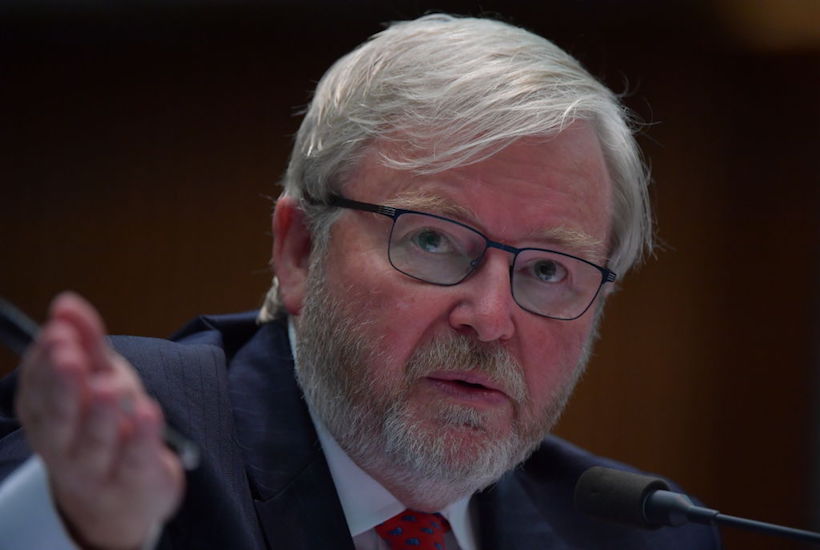
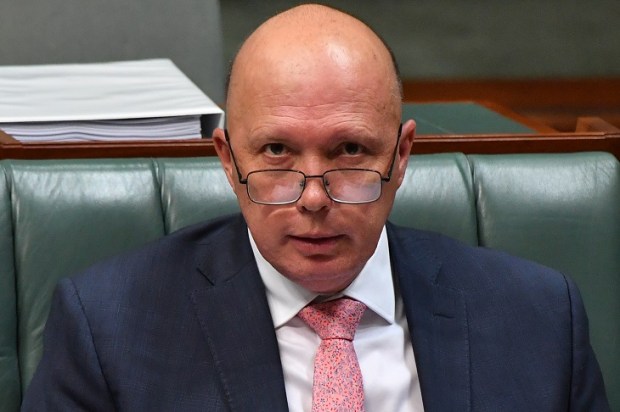

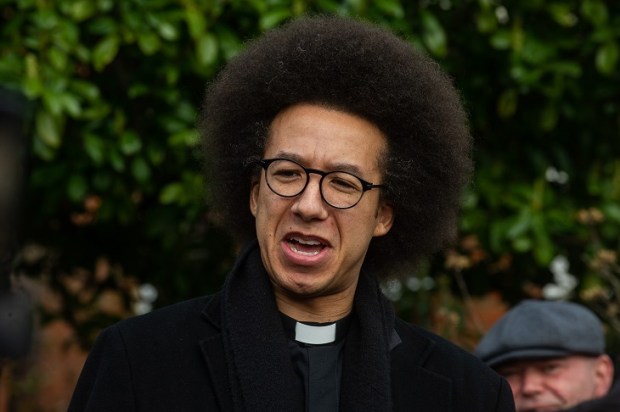

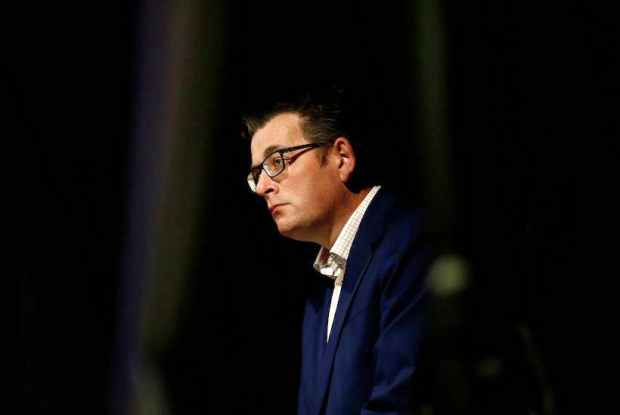
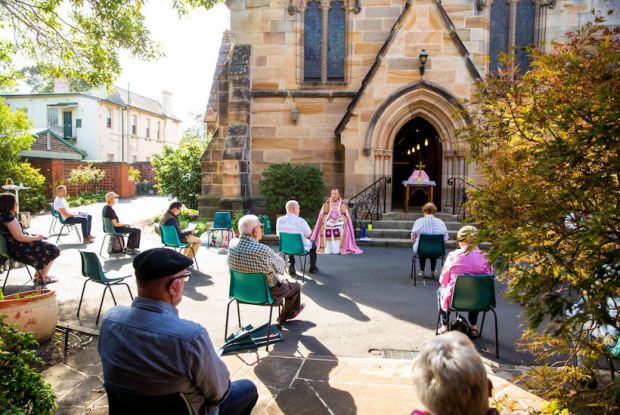


















Comments
Don't miss out
Join the conversation with other Spectator Australia readers. Subscribe to leave a comment.
SUBSCRIBEAlready a subscriber? Log in